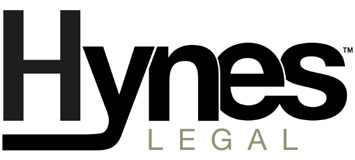The future of caretaking remuneration
Historically there was no real methodology for calculating caretaking remuneration. Caretaking remuneration is often referenced back to a dollar value per lot per annum for comparison purposes. Those amounts range from $600 through to $2,000 per lot per annum (with some buildings more or less than those figures). There are no hard and fast rules.
Understanding Caretaking Remuneration
Historical Lack of Methodology
If you are a cynic, you could believe that most caretaking salaries were tied to a value to fit what the developer wanted the body corporate levies to be to allow the sale of the lots into the real estate market at the time the building was first marketed. The ‘market’ might have been looking for no more than $60 per week in body corporate levies. Insurance, body corporate management, sinking fund and some repair and maintenance and the like added up to $40 per week. The nice neat figure of $20 per week is then left over for caretaking, which is $1,040 per lot per annum. Hey presto, you now have that figure locked away for the caretaking remuneration. Many bodies corporate and resident managers still use that figure as a reference point for discussions around caretaking remuneration reviews.
Dollar Value per Lot per Annum as a Reference Point
Calculating caretaking remuneration by referencing only a dollar value per lot per annum is fundamentally flawed.
Each scheme is different. No two are the same. They all have different physical characteristics. Different common property facilities, different physical area, different gardens and grounds, lifts, pools, plant, trees and shrubs and so on. On top of that they have different legal characteristics, not the least of which are different caretaking agreements. The actual duties under each agreement can be very different, not the least of which is a personal duty (paid for by the resident manager) as against what may be a supervisory one (paid for by the body corporate). Finally there are different committee expectations.
Flaws in Comparing Schemes Based Only on Dollar Value
Comparing the caretaking remuneration of one scheme to the one beside it purely by a dollar value per lot per annum is nonsensical unless you also compare what is required to be done under the actual caretaking agreement. Otherwise you are more than likely comparing apples and oranges.
Importance of Time and Motion Study
If people are serious about understanding the cost of providing a caretaking service, what needs to be done is a time and motion study. The duties need to be broken down and given a time to perform them, and then that time referenced to dollar amounts. Only in that way can you be sure that the remuneration paid under the caretaking agreement is representative of the work required to be performed.
Part of that review will be the creation of a schedule of duties that breaks down what the caretaker is required to do on a daily, weekly, monthly and as required basis. The easiest way to avoid disputes is certainty. An obligation to mow the lawns ‘as required’ is open to interpretation. An obligation to mow them weekly during summer and fortnightly during winter isn’t. That certainty also allows you to ascribe a dollar value to those services.
Considerations for Resident Managers and Bodies Corporate
Both resident managers and bodies corporate need to consider these things when discussing and negotiating caretaking remuneration. In our experience it is sometimes better to start with a clean slate than use the current caretaking duties as a base document. This is because at the time the agreement was put together, it probably did not cater for what both parties now know the needs of the scheme to be.
When the time comes for discussion about caretaking remuneration, a review of the duties (if that has never been done) should be the other side of that same coin.
We can guide parties through the process if needed.
Stay Informed with Hynes Legal
Want the latest information on all things management rights?
Make sure you subscribe to our newsletter to receive the latest information, commentary and updates on the issues that affect you. Click here to subscribe.
Hynes Legal are panel lawyers for the peak industry body: Australian Resident Accommodation Managers Association (ARAMA).


